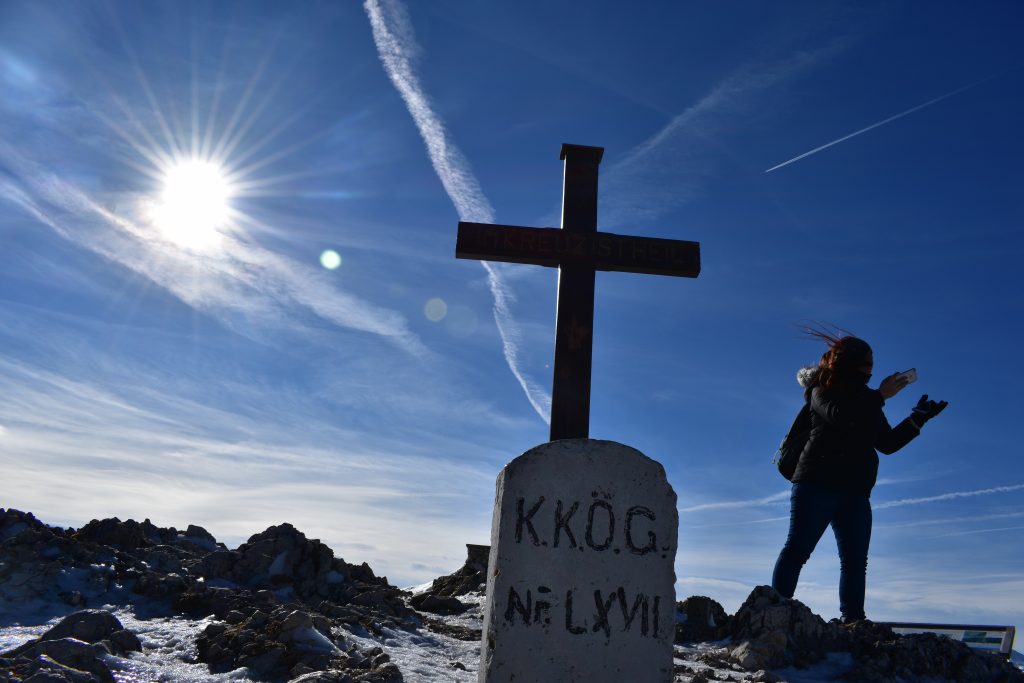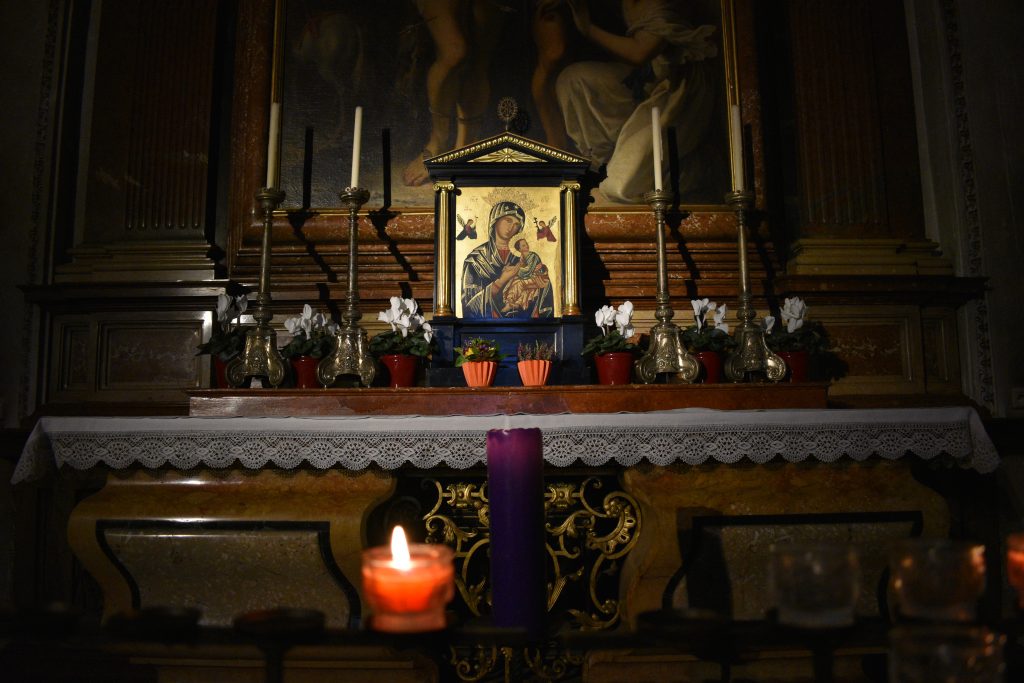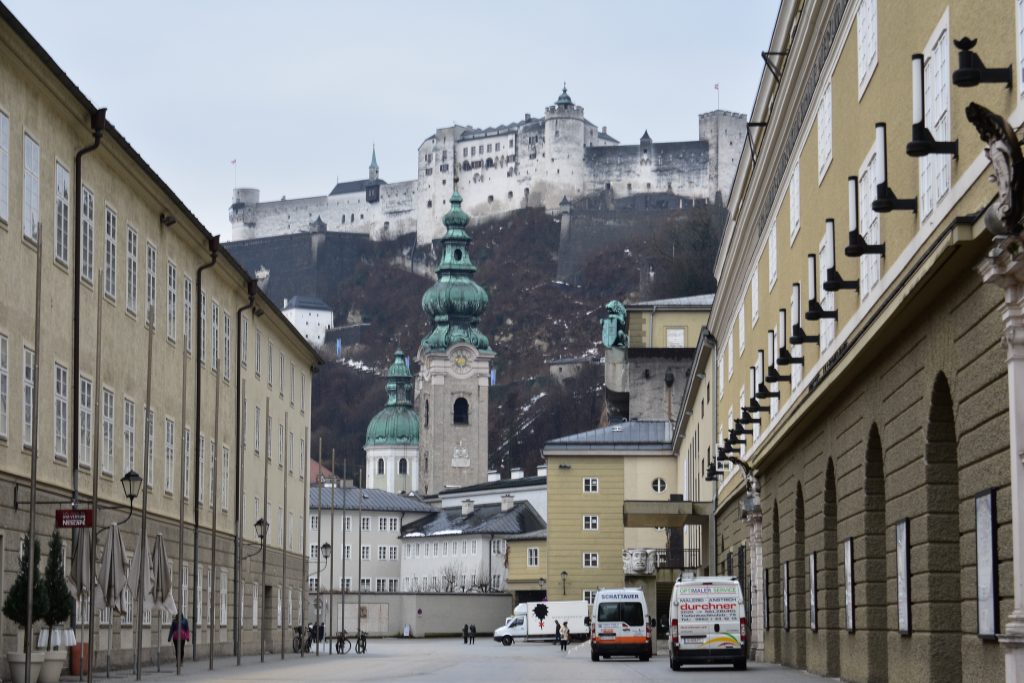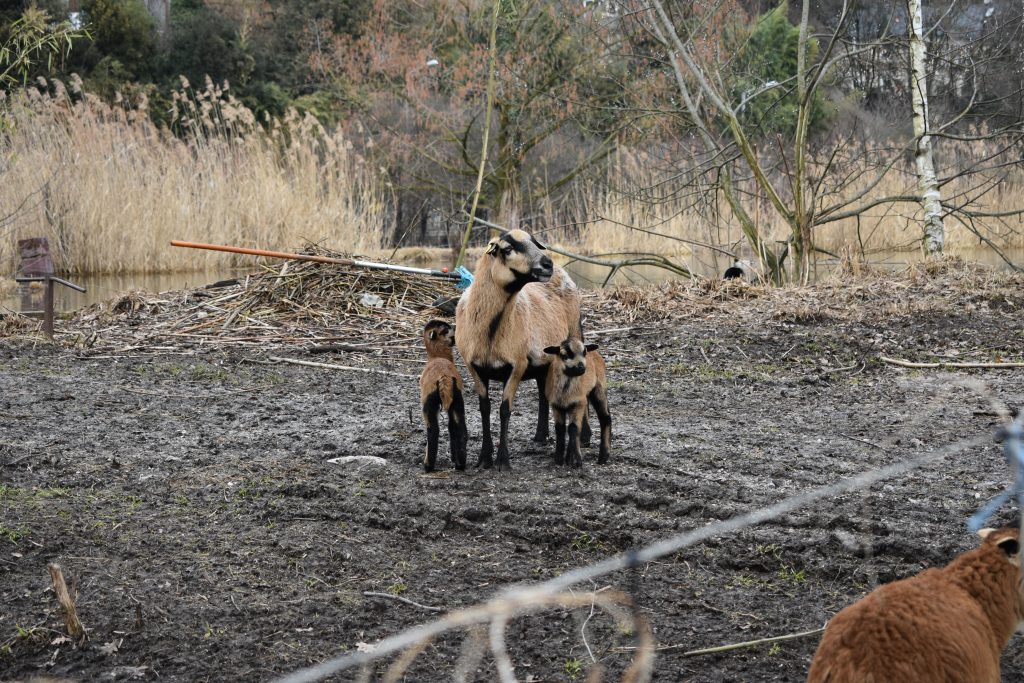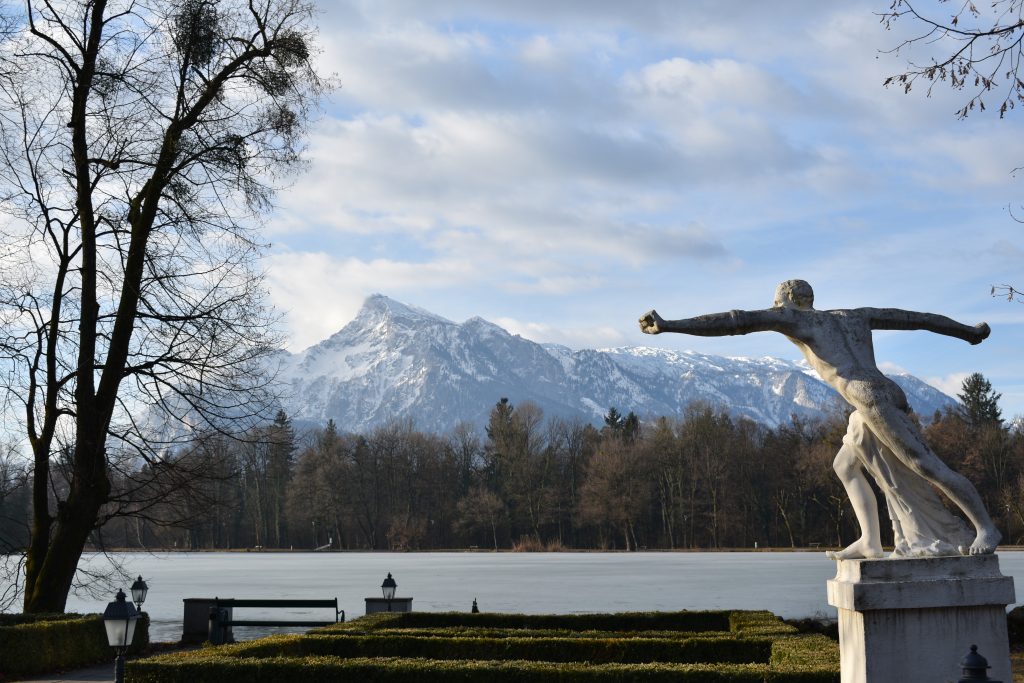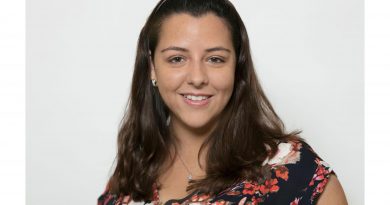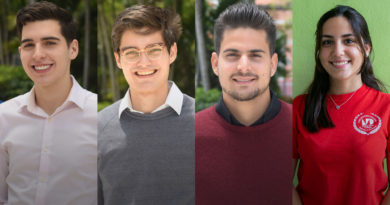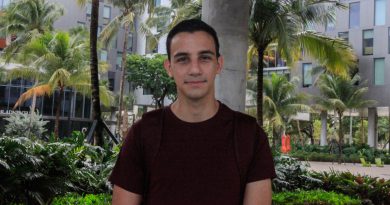Global Citizenship Seminar Advocates Empathy And “Learning To Unlearn”

I was one of more than 40 students from the Miami Dade Honors College that was selected to attend the 2017 Global Citizenship Seminar hosted by Global Citizenship Alliance in Salzburg, Austria from Feb.19 to 26. The seven-day intensive educational seminar focused on discussing issues like disparities, ethnocentrism, globalization and more.
We arrived around 10 a.m. on Feb. 19 after an eight-hour flight. Despite our sleepiness, jet lag and sore necks, we were all roused by the charming and scenic city of Salzburg.
Spread across 17 acres, the Schloss Leopoldskron—with its 17th century rococo palace and 55-room Meierhof—was our home for the next seven days. Our mornings and afternoons consisted of lectures, coffee breaks and walks to and from the hotel and palace, set against a view of the mountains that was impossible to get tired of.
But the grandeur of the setting was far from the fundamental purpose of the seminar. If anything, it only highlighted this year’s overarching theme: disparities.
With lectures on ethnocentrism, mapology, sustainable development and globalization we initially engaged with the theme of disparities by studying the parts that made up the whole.
But as the week went on, as we began to understand these parts more clearly, I understood that we have to look at the world not just as the sum of its parts, but as a whole. It’s not about looking at what we can do amongst just ourselves, our community or our college but what we can do globally as a collective.
The seminar taught me about the importance of education and curiosity. None of the world’s most pressing issues can be solved, or even talked about, if we don’t understand them. It’s up to us as citizens of the world to take responsibility for this learning—whether it shows us who we are in a good or bad light.
Take for example our visit to Dachau. On the third day of the seminar, we traveled to the Dachau Concentration Camp Memorial Site, the first of the Nazi concentration camps opened in Germany. Dachau was a place of horror, torture and violence. It’s a place that shows the worst of humanity. But instead of hiding it or destroying it, it’s a place of remembrance. This, I think, is an important part of what being a “global citizen” is all about. We have to revisit our past, even if that past is a painful one.
If I learned anything from the professors, historians and entrepreneurs—all experts in their fields—who spent the week teaching us, it’s that being a “global citizen” is not a certification you can earn or a destination you can reach.
Jochen Fried, the president and CEO of Global Citizenship Alliance, said: “You never are a global citizen. You become one.”
It’s this constant state of becoming that has stuck with me since arriving back home.
Ultimately, global citizenship is about taking ownership of our education and taking responsibility not just for our own actions but for those around us. It’s about learning to unlearn the ideas that keep us divided, keeping current with what’s going on in the world, and yes—checking our facts.
But it’s also about knowing that often we’ll have more questions than we do answers.
While in Austria, I read A Field Guide to Getting Lost by activist and author Rebecca Solnit. I think she captures these sentiments best when she says:
“For it is not, after all, really a question about whether you can know the unknown, arrive in it, but how to go looking for it, how to travel.”
